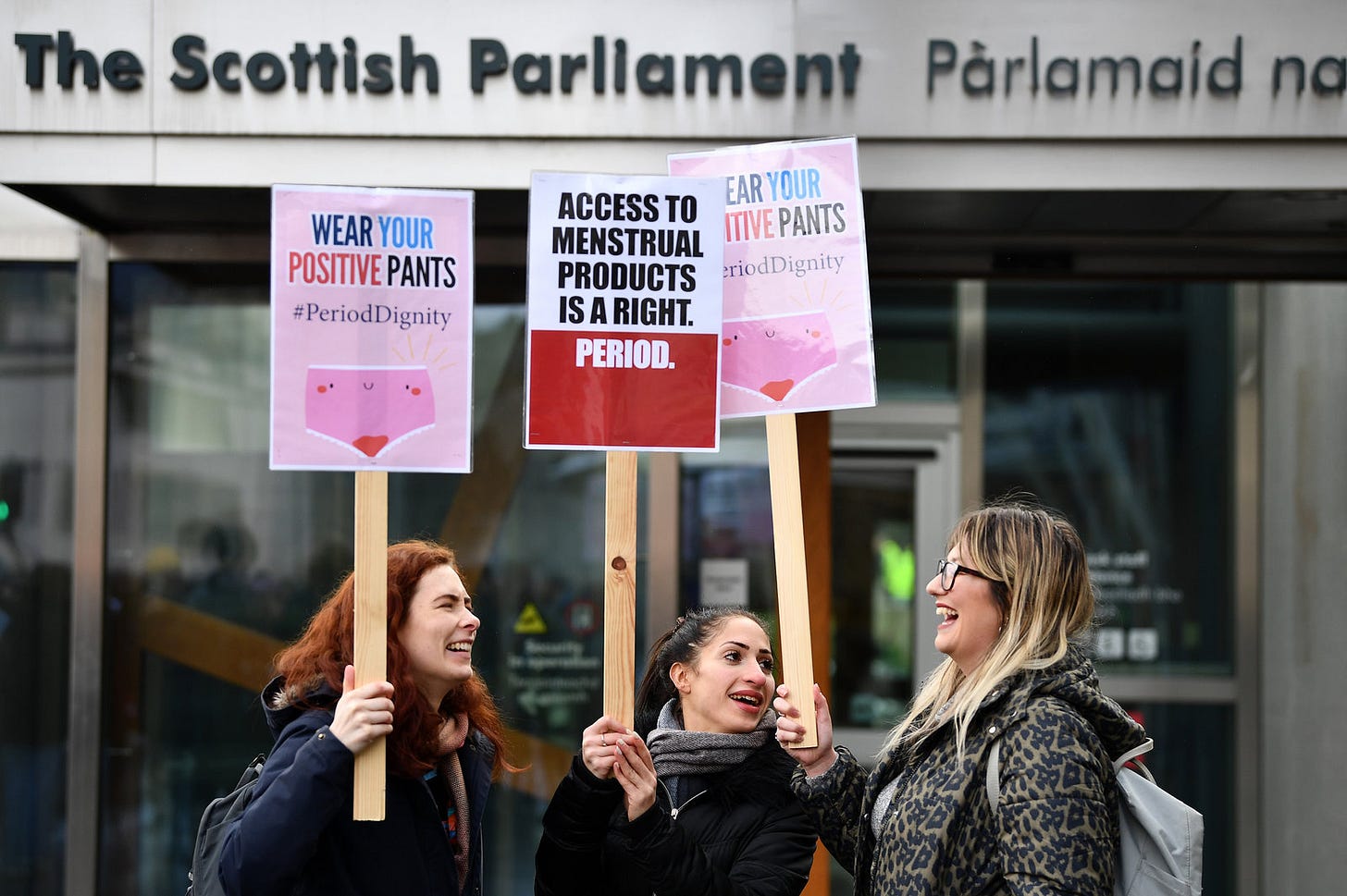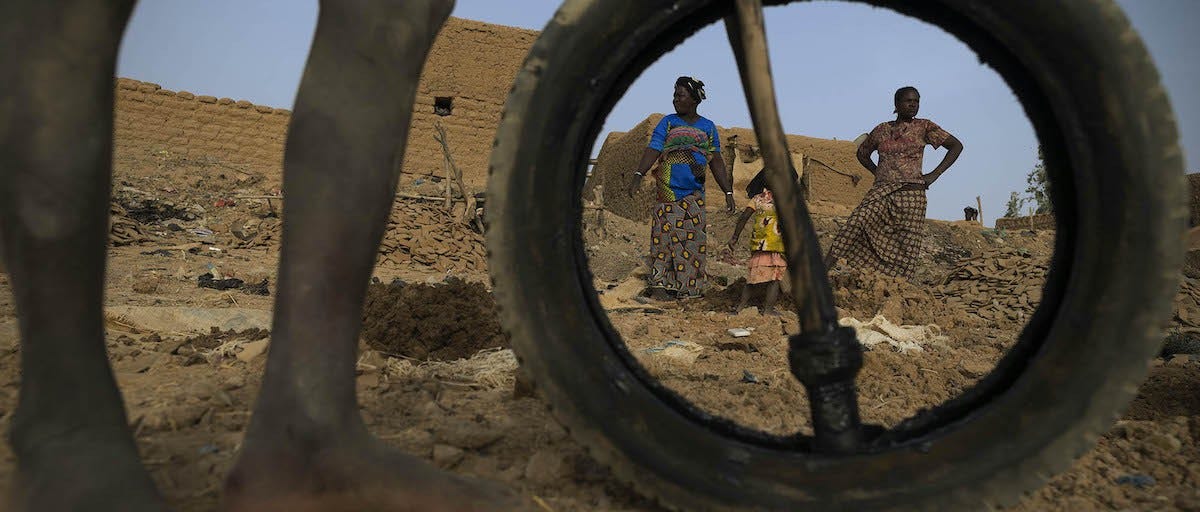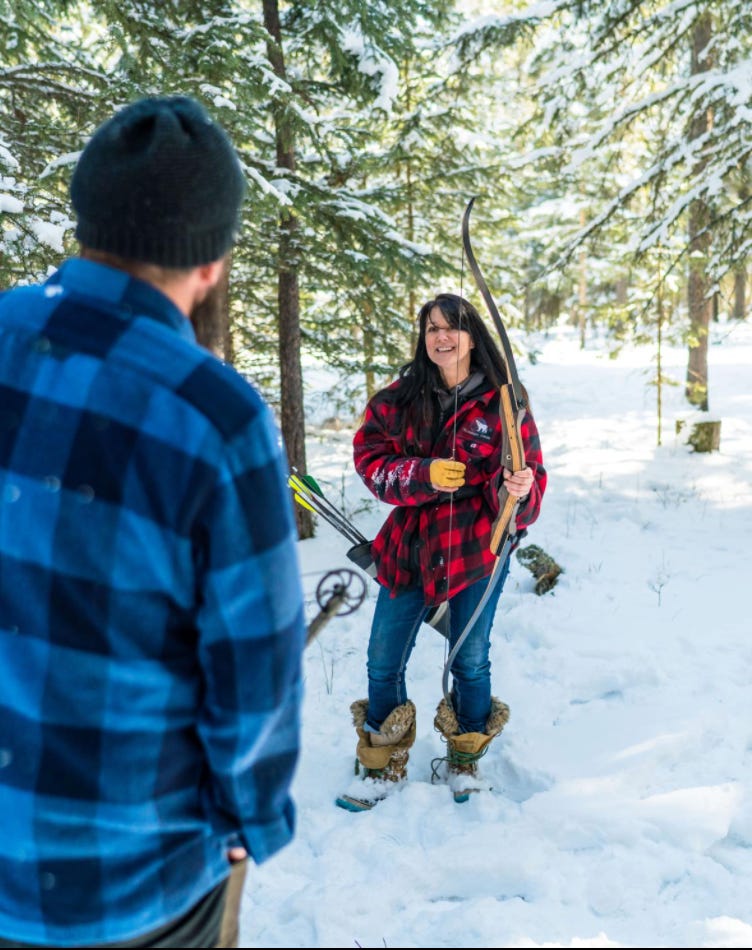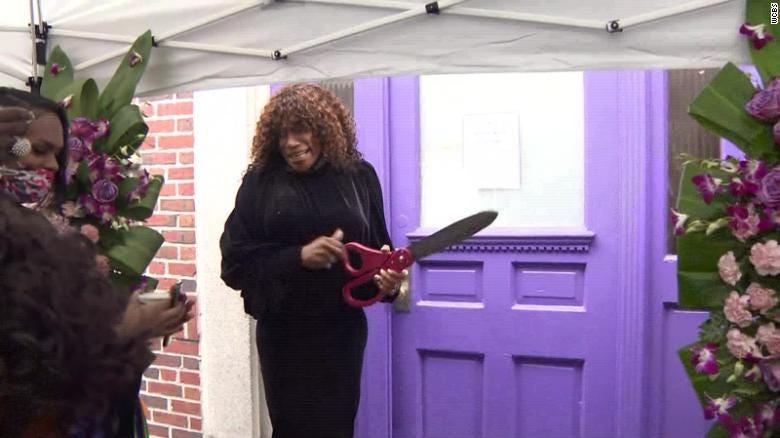Global Roundup: Free Period Products for All in Scotland, Indigenous Women Take the Lead in Tourism, Safe Spaces for Transgender People
Compiled and written by Lauren MacDonald
Activists rally outside the Scottish Parliament in Edinburgh in February in support of legislation for free period products. Scotland will make these products free to all who need them after lawmakers unanimously passed a bill that will require tampons and pads to be available in public places.
Jeff J Mitchell/Getty Images Via NPR
Scotland has passed a bill that has made period products such as tampons and pads free to all who need them. The Period Products (Free Provision) (Scotland) Bill, which passed unanimously and makes Scotland the first country in the world to make period products free, requires local authorities to ensure that period products are generally obtainable free of charge. Schools and colleges must ensure period products are freely available to students, and designated public places must also make the products available.
The Scottish government has estimated the measure will cost 24 million pounds a year – about $32 million.
Proud to vote for this groundbreaking legislation, making Scotland the first country in the world to provide free period products for all who need them. An important policy for women and girls - Nicola Sturgeon, Scotland's first minister
Prior to this, in 2018 Scotland also became the first country to provide free period products in schools, colleges, and universities. Other countries would benefit from following the lead of Scotland in creating legislation to fight period poverty.
Monica Lennon, who introduced and championed the legislation, thanked those who have campaigned for period dignity and to her colleagues for backing the bill.
This is a positive win and a reminder to use our language carefully and in an inclusive way. Scotland has made it clear that period products will be free to all who need them, not just those presenting as women. It is important to include trans men and non-binary people who menstruate and to remember that not all women menstruate.
————————————
The First Church of Eunuchs is the only one for transgender Christians in Pakistan [Fareed Khan/AP]
In Pakistan, transgender individuals of Christian faith are often tormented, bullied, and harassed simply for being transgender. After being shunned by other churches, First Church of Eunuchs has become the first and only church for transgender Christian Pakistanis. “Eunuch” is a term often used for transgender women in South Asia, though some consider it derogatory. The church’s pastor and co-founder Ghazala Shafique said she chose the name to make a point, citing at length verses from the Bible saying eunuchs are favoured by God.
Prior to attending this church, transgender individuals felt like outcasts at church.
First thing I want to say is no one should have to suffer as transgenders suffer…People treat us worse than dogs…This church is important for us because we are free and happy sitting here, worshipping the God who created us - Nena Soutrey
Although the government has legally recognized transgender people, they still continue to face public bullying and humiliation. This is not limited to trans people who are Christian, but of all faiths. This is an excellent first step for those who attend the church, but it does not erase the violence and discrimination that trans people are subjected to.
——————————-
November 25th is International Day for the Elimination of Violence Against Women. In Mali, this annual urge to prioritize women’s right to be free of violence came two months after men and women came together to protest against violence against women following a revelation on social media of alleged intimate partner abuse involving a famous Malian artist.
Overall statistical capacity in the country is weak but is especially weak when it comes to statistics pertaining to violence against women, which explains the lack of data surrounding the issue. This highlights that women’s rights are low on the list of priorities. Despite several calls for reform and action, nothing has been done to aid this problem.
According to author Ornella Moderan “without a specific law on violence against women, victims have few options to seek justice, especially as society stigmatizes those who speak up. There is also nothing to deter perpetrators. Passing a law would help fight impunity, but it won’t be enough.” Tackling violence against women in Mali is a systemic issue, that requires more than law. Structural power imbalances need to be dismantled, as well as women’s access to income opportunities and education need to increase.
—————————
Klett says that it’s important visitors understand her people’s essential hunting practices, which acknowledge an animal with respect.
PHOTOGRAPHY BY INDIGENOUS TOURISM ALBERTA / ROAM CREATIVE
In the early years of the development of Canada’s tourism industry, Indigenous people and their businesses were harmfully excluded. Fast forward to now, where many Indigenous women are bringing their cultural narratives into the mainstream of tourism.
This tourism boom represents a remarkable change from the early years of Canada’s tourism development, when Indigenous people were largely excluded and sometimes exploited by the industry. But things are changing: Indigenous people are more visible than ever, and that’s partly thanks to a growing group of women who are spearheading change in the sector - Jessica Prupas
Motivations for these operators include: reclaiming ancestral land, educating tourists about the hardships faced by Indigenous women, challenging stereotypes, and entering an industry they were traditionally excluded from. In Canada, Indigenous peoples, especially women, are oftentimes left out of the mainstream and are continuously silenced by the public and governments of all levels. Despite the challenges the pandemic has created to the tourism industry as a whole, demand for Indigenous tourism continues to surge while operators provide tours and educational programming for local Canadians.
———————————-
Doroshow at the ribbon-cutting via Metro Weekly
New York City’s first LGBTQ owned and maintained residency has opened in the Queens area. This comes 30 years after owner, transgender activist Ceyenne Doroshow first conceived of the idea. She is a trans woman who founded Gay and Lesbians Living in a Transgender Society (GLITS) and is now the organization’s co-director.
Doroshow believes education is the core of our society, which is why she converted the basement of the building into a learning centre. All of the units will be designed by an interior designer, and furnishings donated by Disney hotels.
My community is being hunted all around the world…If I’m going to have a mission and a statement, my mission has always been to change the lives of my community, to infuse and get young people to rethink what a career is, to invest in ourselves so we can see a better future - Ceyenne Doroshow
————————-
Lauren MacDonald is a third-year student at the University of Ottawa studying International Development and Globalization with a minor in Women's Studies and a settler on traditional Mi'kmaq land. Looking to pursue a career in urban planning/community development, she is interested in gaining as much feminist knowledge as possible in her academics to help build more healthy and equitable communities in the future. She is delighted at the opportunity to shed light on everything feminism around the globe through FEMINIST GIANT!





![The First Church of Eunuchs is the only one for transgender Christians in Pakistan [Fareed Khan/AP] The First Church of Eunuchs is the only one for transgender Christians in Pakistan [Fareed Khan/AP]](https://substackcdn.com/image/fetch/$s_!v3Yi!,w_1456,c_limit,f_auto,q_auto:good,fl_progressive:steep/https%3A%2F%2Fbucketeer-e05bbc84-baa3-437e-9518-adb32be77984.s3.amazonaws.com%2Fpublic%2Fimages%2F4630396b-aa0b-4ec3-a40b-a4a37db24ce2_770x513.jpeg)


